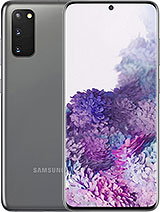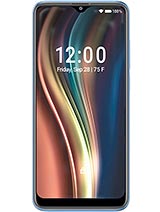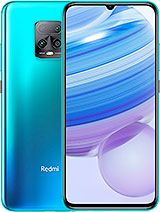iPhone 12 5G Speed Test: Too Much Hype? (Verizon & T-Mobile) By Andru Edwards
- I'm Andru Edward and it is iPhone 12 and iPhone 12 Pro launch week and the big buzz word this year is 5G. However, is it as fast as they say it is? Let's go find out. What's going on Tech Squad, Andru Edwards here, editor-in-chief of gearlive. com, and as I mentioned in this video, we are testing out 5G on the iPhone 12 and iPhone 12 Pro. Now this is something that I covered in the full review, which in case you missed it, I will leave a link down in the description below. So this will be my director's cut of the iPhone 12 5G speed test.
I'm testing both T-Mobile and Verizon 5G here in the Seattle area, so let's get to it. Now I tested the nationwide sub-6 gigahertz flavors of 5G to see how fast they were and what you're seeing in the speed tests is T-Mobile 5G on the iPhone 12 Pro and Verizon 5G on the iPhone 12. I first tried the speed test here in my home, and as you'll see in these results, there isn't much improvement over 4G LTE at least right now. I got 48 megabits down and 6.7 up on Verizon and 89 megabits down and 0.89 up with T-Mobile in testing both nationwide 5G networks. Then I switched to 4G LTE and got 33 down and 10 up on Verizon and 58 down and 1.8 up on T-Mobile. I also did a quick wifi speed test where the results showed actual fast speeds, but then I decided to head downtown to test 5G, went out and about since that's likely when it would matter more and not when you're at home on wifi.
So I repeated the same test and had a couple of surprises. First, I was able to connect to a 5G ultra wide band millimeter wave signal, despite the fact that Verizon hasn't announced or launched that service here in Seattle. So I assume it's still in its testing phase. However, as you can see here side by side, Verizon's millimeter wave connection was able to hit 105 megabits per second download and 58 megabits upload. T-Mobile sub-6 gigahertz 5G hit 59 megs down and about 47 up.
Then I tested the speeds on their 4G LTE networks for comparison and as you can see here, Verizon's LTE speeds were almost equal to millimeter wave, 103 megs down compared to 105 and 56 up compared to 58. On the T-Mobile side, LTE hit 56 megs down compared to 59 on 5G and 36 up compared to 47. So again, when it comes to speeds, there's not a huge benefit currently. That doesn't mean that some people aren't gonna see better connections though, especially in areas where 4G was spotty.5G may not meet a huge boost in speed right away, but it can absolutely provide service in areas where people previously struggled to get it. The nice thing about the iPhone is they last a long time, they maintain software support by Apple for about five years.
So the iPhone 12 you buy today will be equipped to handle 5G speeds as the rollout accelerates. One thing about 5G that stuck out for me, I typically use two SIMs in my iPhone, a T-Mobile e-SIM for calls and texts and Verizon physical SIM for data. It works great on the iPhone 10 X Max and iPhone 11 Pro Max with no negative hit to 4G LTE performance. However, on the iPhone 12 and 12 Pro, you can't access 5G at all if you use the dual SIM feature, instead you have to use 4G LTE at all times. One way around this is to turn off one SIM or the other in the settings, which will then allow you to access 5G on the one active SIM.
But I don't know how many people are gonna wanna mess with settings to swap between services to get 5G connectivity. I'm not sure if this is an iPhone limitation or if it's a carrier limitation, but I did wanna point it out in case anyone out there is in the same boat as me. There you have it guys, that was your look at my 5G speed test here in the Seattle area on both T-Mobile and Verizon. Again, as of right now, as of today at the end of 2020, 5G seems to be very close in speeds to 4G LTE. We did find it to be a little faster, but not way faster, at least not yet.
Also there's a chance that the millimeter wave signal that I found on Verizon downtown is actually running a 4G LTE on the back hole. So that may be why we didn't see those insanely fast speeds for millimeter wave when I tested it. And also to be fair, Verizon has not announced availability of millimeter wave for the public here in the Seattle area. But now I wanna hear from you, do you have 5G in your area? Have you tested your speeds? And if so, what do they look like? Drop me a comment down below and let me know, and I'll meet you there for further discussion. Thank you so much for watching as always guys.
I appreciate your support. I'm Andru Edwards, and I'll catch you in the next video. (upbeat music).
Source : Andru Edwards





![Xiaomi Mi Mix 4: All You Need to Know, Real PPT Leaks!! [English]](https://img.youtube.com/vi/s-9NY6VLZfE/maxresdefault.jpg )





















